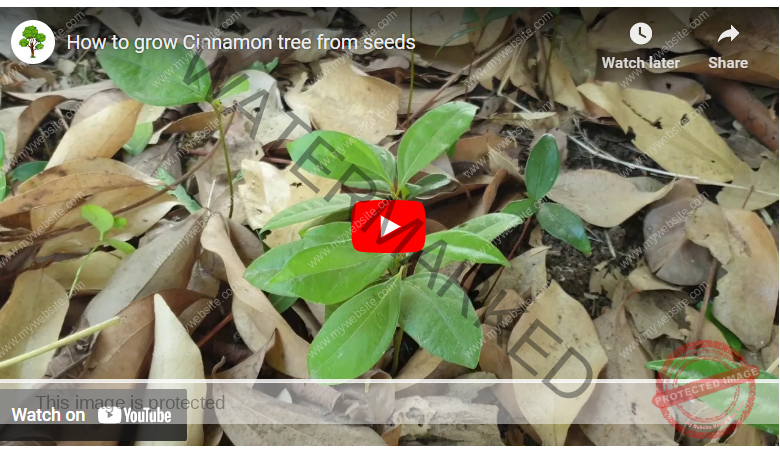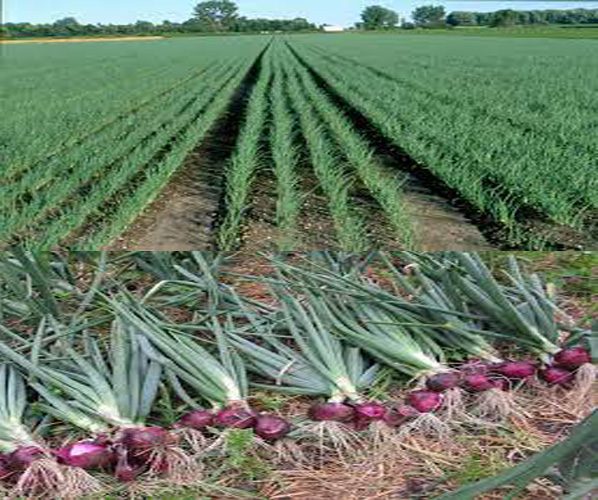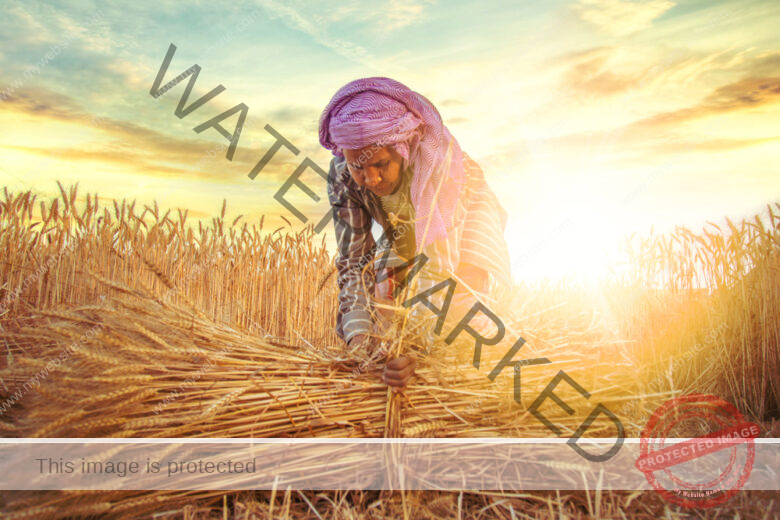Cinnamon is a popular spice known for its sweet and warm flavor, and it has been used for culinary and medicinal purposes for centuries.
Growing cinnamon in Australia can be a rewarding experience for beginners, but it requires some knowledge and patience. Cinnamon trees, also known as Cinnamomum verum, thrive in tropical and subtropical climates, making some areas in Australia suitable for cultivation.
To grow cinnamon, you need to start with healthy seedlings, provide them with adequate sunlight, water, and soil nutrients, and protect them from pests and diseases. With proper care, you can grow your own cinnamon trees and harvest your own cinnamon sticks to use in your recipes.
How To Grow Cinnamon In Australia Step By Step Guide
I know you are eager to grow cinnamon in Australia, but I will recommend that you go through the steps discussed below so that you can successfully grow cinnamon on your own.
Read Also: [Beginners Guide] How To Grow Cinnamon Basil
Step 1 – Select a Good Planting Location
When it comes to growing cinnamon in Australia, choosing the right planting location is crucial for the success of your cinnamon plant.
Cinnamon is a tropical plant that thrives in warm, humid conditions, but it can also grow in cooler regions with a little bit of care.
First, you’ll want to look for a spot that gets plenty of sunlight. Cinnamon plants need a lot of light to grow, so make sure the spot you choose gets at least 6-8 hours of direct sunlight every day.
Read Also: [Beginners Guide] How To Grow Cinnamon Tree From Seed
If you’re not sure which spot in your garden gets the most sunlight, you can use a sun chart or ask an expert at your local nursery.
Next, you’ll want to make sure the soil in your chosen spot is well-draining. Cinnamon plants don’t like to have their roots sitting in water, so if your soil is prone to waterlogging, you may need to add some organic matter to improve the drainage.
If you live in a cooler area, you’ll also want to make sure the spot you choose is protected from frost. Frost can damage or even kill your cinnamon plant, so you’ll need to choose a spot that’s sheltered from the wind and cold. You can also consider growing your cinnamon in a pot that you can move indoors during the winter months.
Read Also: [Beginners Guide] How to Grow Cinnamon at Home
Step 2 – Obtain cinnamon seeds or cuttings
You can purchase cinnamon seeds or cuttings online or from a local plant nursery. If you’re not sure which one to choose, ask an expert at the nursery for advice.
Step 3 – Prepare the soil
Once you’ve found a suitable location for your cinnamon plant, it’s time to prepare the soil. This step is important to ensure that your plant has the best possible start and will be able to grow and thrive.
The first thing you’ll need to do is remove any debris or weeds from the area where you plan to plant your cinnamon. This will give your plant the space it needs to grow without any competition for nutrients and water.
Next, you’ll want to break up the soil or till it to a depth of at least 15cm. This will help to loosen the soil and create a better environment for the roots to grow in. You can use a garden fork or a tiller to do this, depending on the size of your planting area.
Read Also: [Beginners Guide] How To Grow Ceylon Cinnamon
Once you’ve prepared the soil, you can add some compost or well-rotted manure to help improve its quality. This will provide your cinnamon plant with the nutrients it needs to grow strong and healthy. Simply spread a layer of compost or manure over the soil and mix it in well.
If you don’t have access to compost or well-rotted manure, you can also use a slow-release fertilizer.
This type of fertilizer will provide your plant with a steady supply of nutrients over a longer period of time. Be sure to follow the instructions on the package and apply the fertilizer as directed.
Read Also: [Beginners Guide] How To Grow Badam From Seed
Step 4 – Plant the cinnamon seeds or cuttings
If you’re using seeds, plant them about 1/4 inch deep in the soil. If you’re using cuttings, plant them about 2 inches deep in the soil. Make sure to give each plant enough space to grow.
Step 5 – Water the Cinnamon Regularly
Your cinnamon plants will need regular watering to grow properly. Water the soil deeply once or twice a week, depending on how quickly the soil dries out. You don’t want to overwater your plants, as this can lead to root rot.
Step 6 – Provide Proper Care
Growing cinnamon in Australia requires proper care to ensure that your plant stays healthy and produces the best quality cinnamon. Here are some important care tips to keep in mind:
Read Also: [Beginners Guide] How To Grow Aloe Vera
#1. Fertilizer Application
Cinnamon plants require regular feeding to grow and produce healthy leaves and bark. You can use a balanced, slow-release fertilizer that’s high in nitrogen, phosphorus, and potassium.
Apply the fertilizer according to the package instructions, and avoid over-fertilizing, which can damage your plant.
#2. Pruning
Pruning your cinnamon plant can help promote healthy growth and increase yield. You can prune your plant in the spring or summer by removing any dead or diseased branches, as well as any branches that are rubbing against each other.
You can also remove any lower branches that are touching the ground, as these can be more susceptible to disease.
Read Also: [Beginners Guide] How to Grow Almond Tree from Seed
#3. Disease And Pest Control
Cinnamon plants can be susceptible to fungal diseases and pests like mealybugs and spider mites. To prevent these issues, make sure to keep your plant well-watered but not waterlogged, and avoid getting water on the leaves.
You can also use organic pest control methods like neem oil or insecticidal soap to keep pests at bay. If you notice any signs of disease, such as leaf spots or discoloration, remove the affected leaves and dispose of them away from your plant.
Step 7 – Harvest The Cinnamon
Cinnamon can be harvested once the tree reaches maturity, which is typically after 2-3 years. The bark is harvested by removing the outer layer and then peeling off the inner bark. The inner bark is then dried and used as cinnamon spice.
Read Also: [Beginners Guide] How To Grow Cinnamon Indoor
Best Practices of Growing Cinnamon in Australia
- Choose a suitable planting location that receives plenty of sunlight and has well-draining soil.
- Prepare the soil by removing debris and adding compost or well-rotted manure.
- Water your cinnamon plant regularly, but avoid waterlogging the soil.
- Fertilize your plant with a balanced, slow-release fertilizer high in nitrogen, phosphorus, and potassium.
- Prune your plant to promote healthy growth and increase yield.
- Watch out for signs of disease or pests, and use organic pest control methods if necessary.
- Harvest cinnamon once the bark has reached the desired thickness.
Merits of Growing Cinnamon in Australia
- Cinnamon is a high-value crop that can provide a profitable income stream.
- Growing cinnamon can be a sustainable and environmentally-friendly way to utilize land.
- Cinnamon has a long shelf life and can be easily transported, making it a good crop for export.
- Cinnamon has potential health benefits and is in high demand for its culinary and medicinal properties.
- Cinnamon can be grown in a range of climates, making it accessible to many regions in Australia.
Read Also: [Beginners Guide] How To Grow Cinnamon In Canada
Challenges of Growing Cinnamon in Australia
- Cinnamon requires a warm, tropical climate, which can be challenging to replicate in some parts of Australia.
- Cinnamon can be susceptible to disease and pests, which can affect yield and quality.
- Cinnamon takes several years to mature, requiring a long-term investment of time and resources.
- Cinnamon requires careful management of water and soil conditions, which can be difficult in some areas.
Cost of Growing Cinnamon in Australia
The cost of growing cinnamon in Australia can vary depending on factors such as land availability, labor costs, and equipment expenses.
However, it’s important to note that growing cinnamon can be a long-term investment, as it takes several years for the plant to mature and start producing bark.
Some costs to consider when growing cinnamon include:
- Land: Depending on the location and size of the plantation, the cost of acquiring or leasing land can vary significantly.
- Labor: Growing cinnamon requires regular maintenance, including watering, fertilizing, pruning, and harvesting. The cost of labor will depend on the size of the plantation and the availability of workers.
- Equipment: Depending on the size of the plantation, equipment such as irrigation systems, pruning tools, and harvesting tools may be required.
- Inputs: The cost of inputs such as fertilizer and pest control products can add up over time.
Where to sell Cinnamon in Australia
There are several options for selling cinnamon in Australia, including:
- Farmers markets: Local farmers markets are a great way to sell fresh cinnamon and connect with consumers directly.
- Online marketplaces: There are several online marketplaces that connect farmers with consumers looking for high-quality cinnamon, such as Farmhouse Direct and BuyAusMade.
- Export: Australia’s cinnamon industry is relatively small, but there is potential for exporting to markets in Asia and the Middle East.
How long does Cinnamon Reach Maturity
Cinnamon takes several years to reach maturity and start producing bark. The exact timeline will depend on factors such as climate, soil conditions, and management practices.
Generally, cinnamon plants can take anywhere from 2-5 years to mature and start producing bark.
Varieties of Cinnamon Grown in Australia
There are several varieties of cinnamon that can be grown in Australia, including:
- Ceylon cinnamon (Cinnamomum verum): A premium variety of cinnamon with a sweet, delicate flavor.
- Cassia cinnamon (Cinnamomum cassia): A common variety of cinnamon with a strong, spicy flavor.
- Saigon cinnamon (Cinnamomum loureiroi): A variety of cinnamon with a strong, sweet flavor.
How much is Cinnamon Sold in Australia
The price of cinnamon in Australia can vary depending on factors such as the variety, quality, and market demand.
According to some reports, the wholesale price of cinnamon in Australia can range from $20-50 per kilogram, while retail prices can be much higher.
However, the price of cinnamon can fluctuate depending on market conditions, so it’s important to research the current market before selling.
Cinnamon Tree Bunnings
Bunnings is a popular Australian hardware store that sells a variety of plants, including cinnamon trees. Cinnamon trees can be purchased as young plants or as seeds from Bunnings.
When selecting a cinnamon tree from Bunnings, look for a healthy plant with no signs of damage or disease. Cinnamon trees can be grown in containers or in the ground, depending on the available space and growing conditions.
How to Harvest Cinnamon
Cinnamon is harvested by cutting off the outer bark of the cinnamon tree, which is then dried and rolled into cinnamon sticks.
To harvest cinnamon, wait until the tree is at least two years old and has thick bark. Cut a section of bark from the tree, making sure not to damage the inner bark.
Use a knife or scraper to remove the outer bark from the cut section, being careful not to remove too much bark. The harvested bark can then be dried and rolled into cinnamon sticks.
How to Grow a Cinnamon Tree
To grow a cinnamon tree, start by selecting a suitable planting location with well-draining soil and plenty of sunlight. Plant the cinnamon tree in the ground or in a large container, and water it regularly.
Fertilize the tree every 2-3 months with a balanced fertilizer. Trim the tree to keep it in shape and to promote branching. It may take several years for the cinnamon tree to mature and start producing bark.
How to Grow Cinnamon from Cinnamon Sticks
Cinnamon can be grown from cinnamon sticks by first soaking the sticks in water for several hours to soften them.
Cut the sticks into small pieces, and plant them in a container filled with well-draining soil. Water the soil regularly and place the container in a warm, sunny location.
Cinnamon can take several months to germinate, and it may take several years for the plant to mature and start producing bark.
How to Grow Cinnamon Indoors
Cinnamon can be grown indoors in a large container with well-draining soil and plenty of sunlight. The container should be placed in a warm, sunny location, and the soil should be kept moist but not waterlogged.
Feed the plant with a balanced fertilizer every two to three months. Prune the plant to maintain its shape and encourage branching. It may take several years for the cinnamon plant to mature and start producing bark.
Can I Grow a Cinnamon Tree
Yes, cinnamon trees can be grown in Australia. However, cinnamon trees are tropical plants and require warm, humid conditions to grow.
In cooler regions, cinnamon trees can be grown in a greenhouse or indoors. Cinnamon trees can also be grown in containers, which allows for easier control of growing conditions.
How to Grow Cinnamon from Cuttings
Cinnamon can be grown from cuttings by first selecting a healthy, mature cinnamon tree. Take a cutting from the tree that is at least 6 inches long and has several leaves.
Take out the cutting’s lower leaves and placing the cut end in rooting hormone. Plant the cutting in a container filled with well-draining soil and water it regularly.
Place the container in a warm, sunny location and wait for the cutting to root. It may take several months for the cutting to root and start growing.
Conclusion
Growing cinnamon in Australia can be a fun and rewarding experience for beginners. By following the right steps, you can successfully cultivate your own cinnamon trees and harvest your own cinnamon sticks. With patience and care, you can enjoy the sweet and warm flavor of cinnamon in your dishes straight from your own garden.




